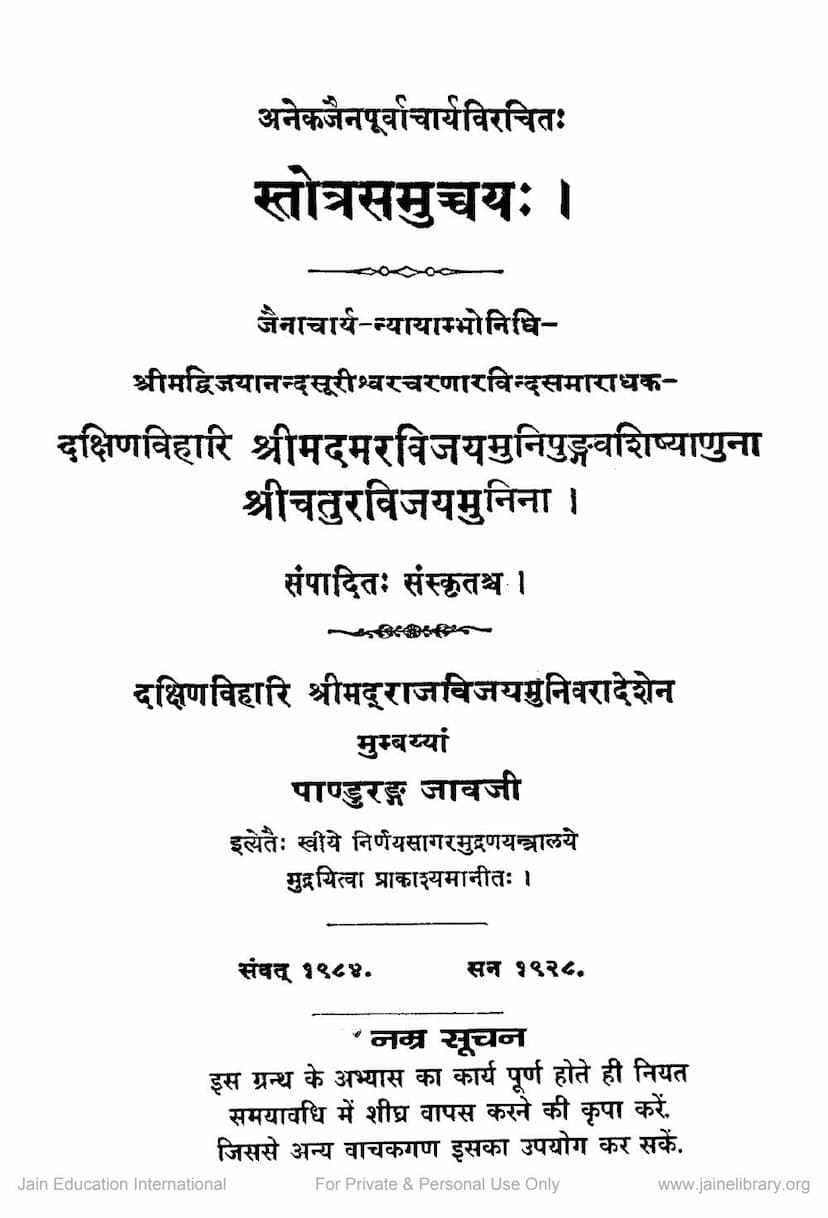Stotrasamucchaya
Added to library: September 2, 2025

Summary
The Stotrasamucchaya (Collection of Hymns) is a compilation of various hymns and prayers composed by ancient Jain monks and scholars. Edited by Shri Chaturvijay Muni, this book was published by Pandurang Javji in Bombay in the year 1928 (Samvat 1984).
The text begins with an introductory note from the editor, Shri Chaturvijay Muni, who expresses his gratitude to his guru, Shri Amarvijay Muni, and seeks forgiveness from the virtuous readers for any perceived audacity in undertaking this compilation. He highlights the immense value of these hymns in guiding spiritual seekers towards the ultimate goal.
The introduction then delves into the history of Jainism, tracing its origins back to Lord Rishabhadeva, the first Tirthankara. It emphasizes the core principle of "Ahimsa Paramo Dharmaḥ" (Non-violence is the supreme religion) and how the teachings of the Tirthankaras have spread across the land, uplifting humanity from ignorance and suffering. The text acknowledges the difficulty in tracing the exact timelines and places of composition for each hymn due to the lack of historical records, but expresses hope that the original manuscripts, though found in deteriorating states in places like Gujarat, will now be preserved for posterity through this collection.
The book then proceeds to present a diverse array of stotras (hymns) dedicated to various Tirthankaras and other revered figures in Jainism. These hymns are noted for their rich literary quality, employing various poetic devices and styles, including Sanskrit, Prakrit, and other regional languages. The text also points out the presence of intricate compositions like wordplay, rhyming schemes, and palindromic verses, adding to the aesthetic appeal and devotional depth.
The Stotrasamucchaya aims to provide devotees with a comprehensive collection of devotional verses that evoke powerful emotions, inspire righteous conduct, and ultimately lead to spiritual liberation. The introduction also touches upon the philosophical underpinnings of Jain aesthetics, citing classical Indian treatises on poetry and rasa (aesthetic flavor) to illustrate the profound impact these hymns are expected to have on the reader's spiritual journey.
The latter part of the text includes a detailed index listing the names of the deities praised, the first lines of the hymns (pratika), and the names of the authors where known. This index allows readers to easily navigate and find specific hymns, showcasing the vastness and diversity of devotional literature within the Jain tradition. The collection is a testament to the rich spiritual and literary heritage of Jainism.